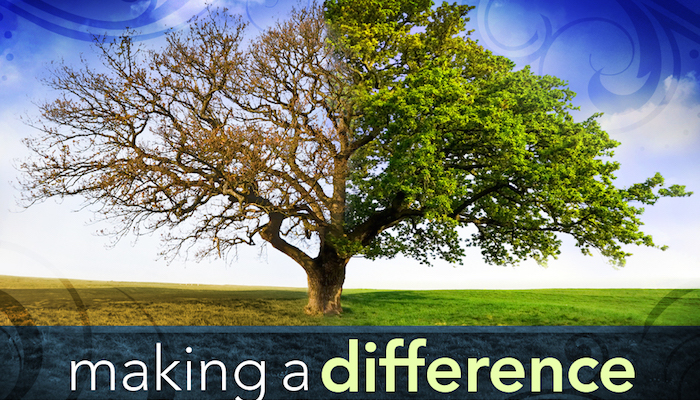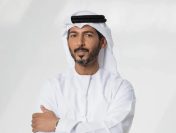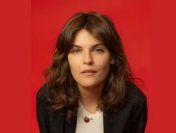
There are few times when you have a real ‘aha’ career moment. Small lessons that are obvious, but mean much more when you’ve slipped and learned something the hard-er way.
Having started my career as a creative, I’ll never forget going to LA to shoot my first ever big budget commercial. Having worked, along with my partner over multiple weekends, our script finally came back the winner (vs the other three teams competing over the same brief.) We finally crossed the finish line.
The night before our shoot, over dinner – our Creative Directors said, “Tarek, you’ve worked very hard to get here and we’d like it that you to make a toast”.
I turned to my partner with my glass raised and said something along the lines of “Congratulations. After all of the hard work and perseverance, we sit amongst the most senior people of our organization along with our wonderful client. We did it.”
There was silence at the table.
My Creative Director stepped in and said, “let me help you out…Congratulations to ALL of us around this dinner table. Each of you have played an enormous role to reach here.”
Immediately, I realized how right he was and how wrong I was. Advertising is a team sport. And no matter where the idea was born, without the rest of the team, nothing would be realized – client included. Obvious today? Yes. As a 23 year old on his first shoot, a little less so.
The ad was rated as one of the brand’s most effective, which bought us a lot of credibility with the client and allowed for many more opportunities moving forward, but effectiveness was not the point of that story.
Learning the importance of effectiveness in advertising came to me shortly after.
Again, 23, and with the ambition to change the world, I was surrounded by a community of photographers, artists, film-makers and the like. We were all super ambitious. And we would all work together to support each other on new initiatives.
One of those artists was a photographer, who happened to be my girlfriend. She became passionate about the exploitation and murder of young girls in Juarez, Mexico. Girls as young as 14 and 15 would go to Juarez, an industrial city on the border of El Paso, Texas, from villages to work at Maquiladoras – factories that hire only women. They would often be abducted on the way to work or during the evenings when they would take turns going out to experience big city nightlife.
She went to Juarez, armed with nothing more than a camera and started her photography project to raise awareness to the cause. She met with the authorities, with women who had escaped and with grass-root organizations who came together to fight this on behalf of their daughters.
Once back to NY, I told her that if she really wants to do something about it, then we have to do some advertising. Abstract photography is not going to make a difference in the same way a strong advertising message could. The city of Jaurez offered us free outdoor space in the most important/relevant locations.
From that moment on, I spent my weekends at the office coming up with concepts. As an ad guy, I wanted beautiful ads with tear-jerkingly AMAZING photography, word-smithed copy and unforgettable design, working so hard to craft one idea after another.
At the time, I was taking classes, which took place in various agencies with various creative directors. I explained that I’m working on a project on my own and would like to use the classes to get feedback. Each week, I would go in with my work and I’d realize that I’m just not there. The ads were trying way to hard. I knew it, but I didn’t know how else to approach such an important task. I was working too hard and all it did was complicate the messaging.
One of the Creative Directors, while critiquing my work, asked me what I thought was right or wrong with it. I was wrapped way too deep into creating a great ad campaign, to be able to step back and answer the simplest of questions – What do I want to achieve with the work. And when asked, it was obvious, I wanted to make a difference. I wanted to save lives, if I could. I wanted to create something that was instantly recognizable, and works to protect a very specific person who I know would be targeted. One with a lower level of education than mine. One who is younger, more innocent and extremely vulnerable.
The following weekend, I went back to the drawing board. The dreaded white canvas. I put myself in the mindset of a predator. I also tried putting myself in the mindset of a victim. What could a poster do to help prevent a potential rape?
And there it was, the solution, staring right at me. Tell her what she can do to protect herself the minute she picks up on an unwanted pair of eyes staring at her. So, the headlines were simple. “Spit.” “Pick your nose.” “Vomit.” Basically, make yourself unattractive. These lines were complimented with a simple visual of a pink cross – something that had come to symbolize this very epidemic. Wherever a body was found in Juarez, family members would paste up a pink cross to let people know that someone had been abducted, attacked, raped or killed at that very spot.
Having gone back to present my work the following week, the reaction was instant. The brief was cracked. Anyone who looked at it could answer the simple question: what is this work trying to achieve. It probably wasn’t going to win at Cannes Lions, but at that point, the thought of even entering was the last thing on my mind. No photography, no super slick copy. A simple 2MB file (which was about as big as they could receive in Juarez), and I had loads of artwork sent, printed and spread across the city.
There was no social media, no click, likes or engagement rates, but I followed up regularly with the organization in Juarez. And the news was that people were talking about it. That the work was making a difference. And that’s all that really mattered. That’s all that really matters in our industry on any day.
So, years on, I remember this lesson as one of my most important. The feeling of making a difference meant everything to me. I was both client and agency. If I play that role of client along with my clients, and the work from my agency makes a meaningful difference to them, then I feel that I’m doing the right thing.
That’s what it’s all about. Making a meaningful difference. The award shelves are that much more powerful if each trophy represents a solution that was creative, that worked.
With that, I’d like to thank all at FP7, all at McCann, all at IPG, all my competitors, all media channels and suppliers, all production partners, all the brave brands out there, and all of our clients for their endless support. Please raise your glasses with me, as together, we can make a meaningful difference.




